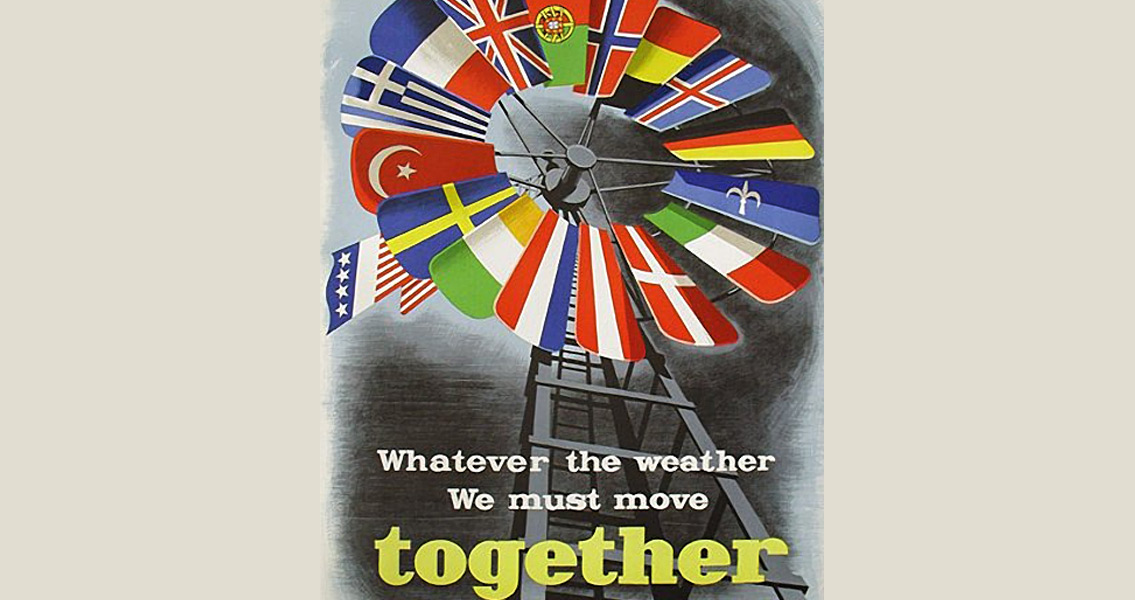<![CDATA[In a speech delivered to Harvard University on 5th June, 1947, US Secretary of State George C. Marshall laid out a plan for a European self help program sponsored by the United States. The speech set the foundations for what would become the Marshall Plan of US aid to Europe. There were a number of reasons for the implementation of the plan and the USA's continued interest in European economic affairs. The Second World War had devastated much of Europe, destroying infrastructure, homes and economies. Three of the biggest economic powers on the continent had been crippled: Britain and France, struggling to repair the damage of six years of war, were unable to begin the trade which could have stimulated other parts of the continent; Germany, the powerful heart of industry in Europe, was in ruins with an uncertain post-war future. Agricultural production had also been heavily disrupted by the war. The USA, a country that although heavily engaged in the conflict had not suffered the same devastation as the other participants, started sending aid to Europe as soon as the Second World War had ended. Marshall's speech in 1947 seems to reflect the realisation that the growing crisis in Europe could not be averted through conventional means. Of course, it's reductive to say that the Marshall Plan was simply an act of American altruism, as the USA had a very practical interest in the return of a stable Europe capable of international trade. After several years of war economics, the United States returned to a civilian state. Greater production in the country meant an increased need for markets for American goods. It was therefore vital for the USA's own prosperity that Europe recover to a situation where it could once again take part in international trade. Another major concern, one which tied the Marshall Plan to the Truman Doctrine, was fear of the spread of communism in Europe, a political ideology which could find support in such a volatile, desperate situation. By 1947, much of Eastern Europe had turned Communist, whether through Soviet occupation or otherwise. Greece was successfully resisting a communist revolution, but only because British soldiers in the country were fighting against communist rebels trying to take over. Observing this situation, Marshall believed that the rest of Europe was on the cusp of falling under the spell of Communism, something which would have drastically improved the influence of the Soviet Union. He believed economic support "against hunger, poverty, desperation, and chaos." was the only means to counter this ominous threat. As such, the Marshall Plan can also be viewed as a key event in the early part of the Cold War. In March 1948, the United States passed the Economic Cooperation Act (what is commonly called the Marshall Plan), which set aside $4 billion in aid for Europe. By the time the plan ended four years later, some $17 billion in aid had been sent. The recipients of the aid were able to shape the support they received and how the funds were spent. The Marshall Plan was deemed a success, leading to a period of strong economic growth in Western Europe from 1952. It advocated integration and federalism in Europe, especially economically, something which many have argued made it easier for the US to trade with the businesses of the continent. The motivations for US aid were clearly more complex than mere philanthropy, but the Marshall Plan was pivotal in triggering Europe's recovery from the Second World War, and its consequences can still be seen today.]]>
The Speech That Led to the Marshall Plan
